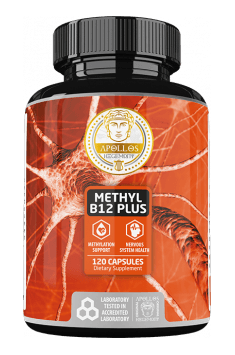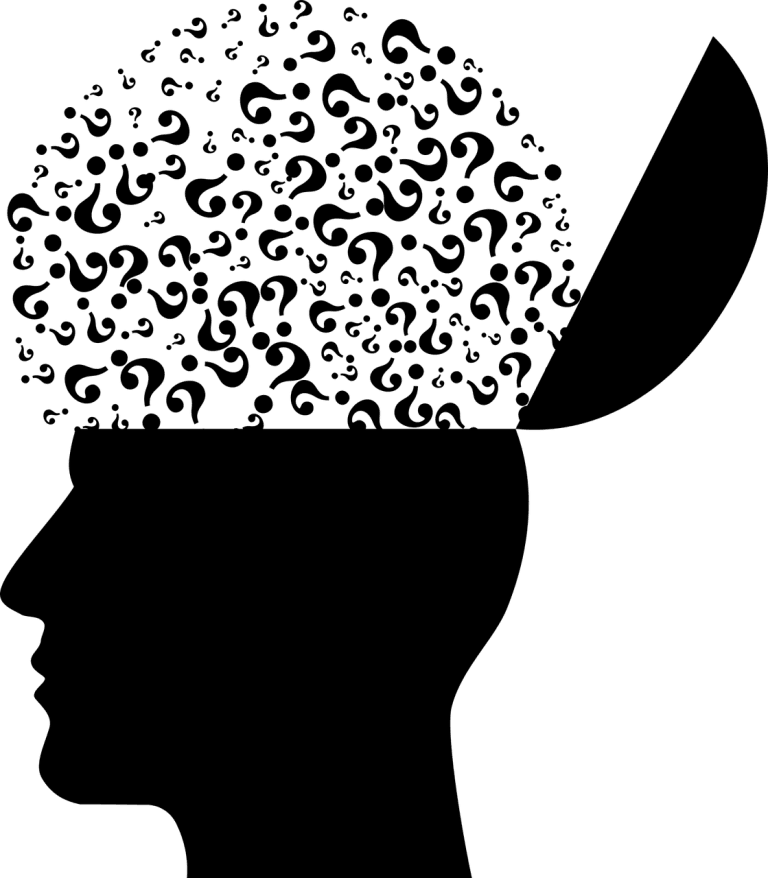Brain fog is not a disease in itself, but rather a symptom of other diseases. This is a type of cognitive impairment including problems with memory, lack of "clarity" of the mind, poor concentration, inability to focus. Some also describe it as mental fatigue. Depending on the severity of the brain fog, it may interfere with work or adversely affect school performance. There is nothing to hide - this condition in the long run causes enormous discomfort and has a negative effect on our lives. In this article, we'll show you six potential causes of brain fog and we'll show you how to deal with it.
What are the causes of cerebral fog?
There are many explanations that explain the cause of this unpleasant, limiting condition. After identifying the underlying cause, you can start work on the leveling of symptoms.
Here are six possible causes that weaken our cognitive functions.
Stress
Chronic stress can increase blood pressure, weaken the immune system and cause depression. It can also cause mental fatigue. When your brain is exhausted, it is more difficult to formulate thoughts, focus and learn clearly. Try to minimize the amount of stress in your life. You can also include relaxation techniques such as meditation and physical activity in your daily routine.
No sleep
Poor sleep quality can also have a significant impact on the functioning of the brain. Too little sleep can lead to poor concentration and "confused thoughts". Take care of sleep hygiene, try to go to bed always at the same time and sleep for a minimum of 7-8 hours.
Hormonal changes
Hormonal changes can also cause cerebral fog. The level of hormones, progesterone and estrogen increases, for example, during pregnancy. This change can affect memory and cause short-term impairment of cognitive functions. Many pregnant people complain that it is difficult for them to collect their thoughts or to express themselves clearly.
Likewise, a drop in estrogen levels during menopause can cause forgetfulness, poor concentration and runaway thoughts.

Diet
Diet can also play a role in the formation of brain fog. Vitamin B-12 supports the proper functioning of the brain, and a deficiency of vitamin B-12 can cause serious problems. Therefore, it is worth to ensure the optimal level of B-12. The easiest way to fill this vitamin with supplements.
If you have food allergies or hypersensitivity, you may also experience changes in your brain capacity after eating certain foods. Possible reasons are:
- MSG (monosodium glutamate),
- aspartame,
- peanuts,
- milk products.
Removal of allergenic foods from the diet can relieve symptoms.
Medicines
If you notice brain fog when taking medicines, talk to your doctor. Brain fog may be a side effect of your medication. Lowering the dose or switching to another drug can significantly reduce your symptoms.
Cerebral fog may also occur after cancer treatment. Chemotherapy and radiation are very invasive methods that reflect not only on our physical well-being, but also our psyche.
Your general health
Inflammation, chronic fatigue or changes in blood glucose levels can also cause mental fatigue. For example, cerebral fog is a symptom of chronic fatigue syndrome, which is associated with persistent fatigue and a noticeable lack of energy for more than six months.
Individuals suffering from fibromyalgia may experience similar vagueness of mind on a daily basis.
Other diseases and illnesses that can cause brain fog include:
- anemia,
- depression,
- diabetes,
- sjögren's syndrome
- migraines
- alzheimer's disease
- hypothyroidism
- autoimmune diseases such as lupus, arthritis and multiple sclerosis

How is brain fog diagnosed?
If you feel that you are not able to think clearly and your cognitive functions are constantly degrading - contact your doctor. A single test can not diagnose cerebral fog. Cerebral fog may indicate a problem, so your doctor will conduct a physical examination and ask about your:
- mental state
- diet
- level of physical activity
You should inform your doctor about other symptoms that co-occur with the cerebral fog. For example, a person with hypothyroidism may have brain fog along with hair loss, dry skin, weight gain or brittle fingernails.
Proper blood tests can help your doctor identify the cause of the brain fog. A blood test can detect the following symptoms:
- abnormal glucose levels,
- poor liver, kidney and thyroid function,
- nutritional deficiencies,
- inflammatory diseases.
On the basis of the results, the doctor will determine if in-depth tests should be carried out. Other diagnostic tools may include imaging tests to examine the inside of the body, such as X-rays, MRI or CT scans. The doctor can also carry out allergy tests or sleep tests to see if our sleep allows us to properly regenerate at night.
Keeping a nutrition journal can help determine if your diet contributes to the formation of brain fog.
How should the brain fog be treated?
The treatment of brain fog depends largely on the cause that causes it.
For example, if you are anemic, iron supplements may increase the production of red blood cells and improve the functioning of your brain. If you have an autoimmune disease, your doctor may prescribe corticosteroids or other medicines to help lower the inflammation or weakness of the immune system.
Sometimes it is a matter of correcting nutritional deficiencies, changing medications or improving sleep quality.
Remedies to reduce brain fog symptoms include:
- Sleeping from 8 to 9 hours a day
- Coping with stress, avoiding excessive consumption of alcohol and caffeine
- Physical exercises
- Regular brain training (additional foreign language lessons or crosswords)
- Finding pleasant activities conducive to relaxation
What are the predictions for brain fog?
Cerebral fog can be frustrating, but you can usually reduce its symptoms. Do not ignore your symptoms. Untreated cerebral fog can adversely affect the quality of your life.







One Comment